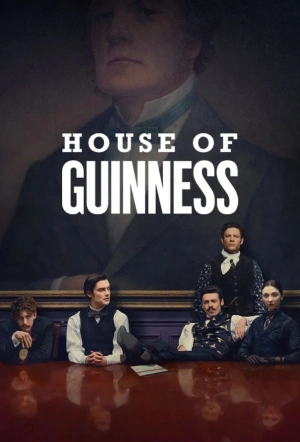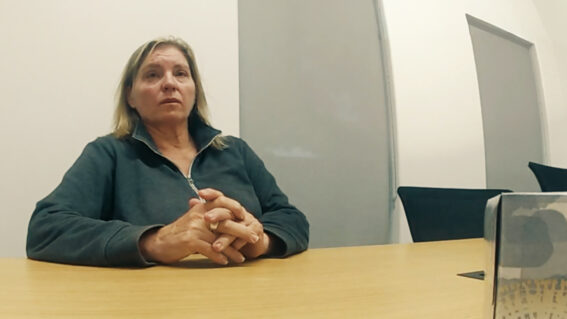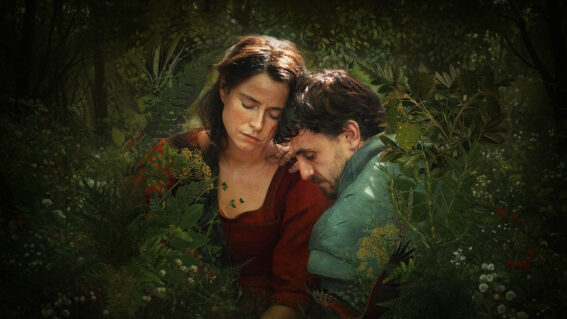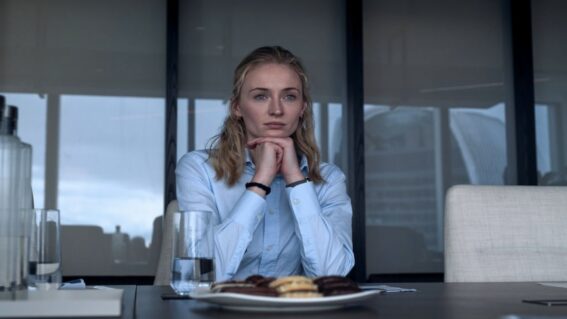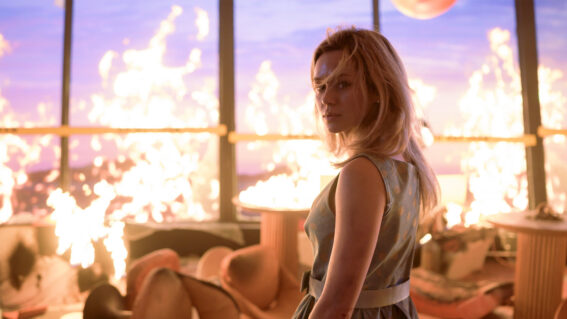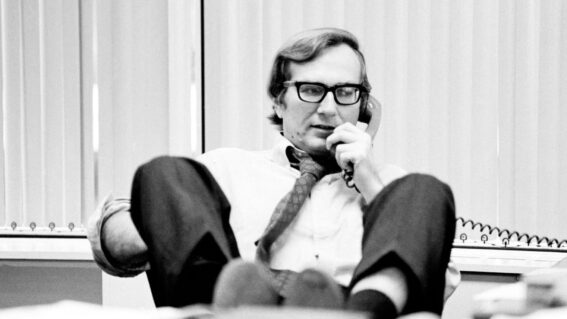House of Guinness blends sex and desire with Ireland’s most famous export
New show from Peaky Blinders’ Steven Knight joins the current trend of bodice rippers soundtracked by contemporary music.
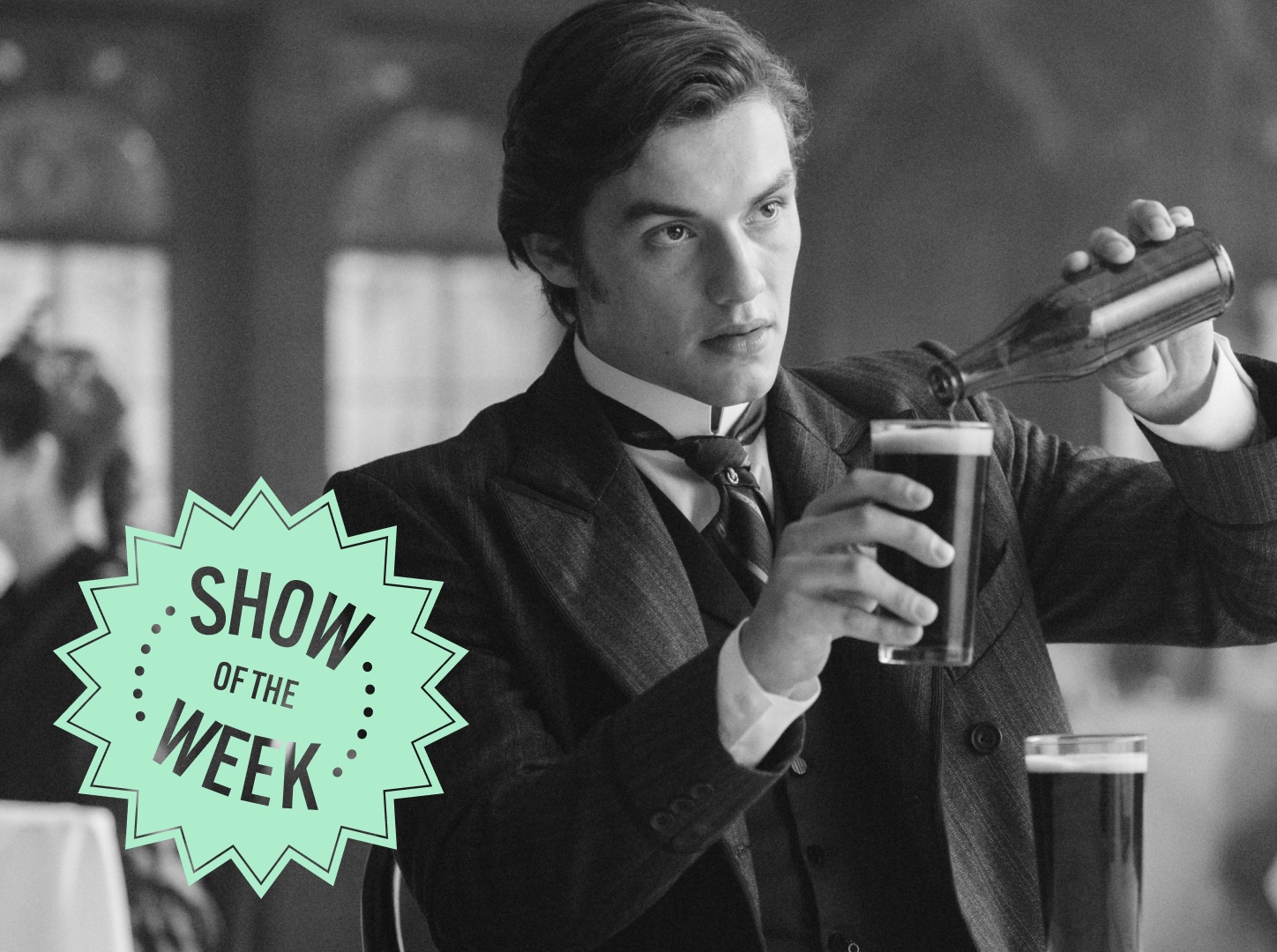
House of Guinness is on its knees, hands clutched around a threadbare top hat, begging me to call it “swaggering”. We’re on Steven Knight’s turf here, where history has always carried a fire in its belly—whether we’re talking House of Guinness’s spiritual cousin, Peaky Blinders, or Knight’s screenplays for the pearl-lined nightmares of Pablo Larraín’s Maria and Spencer, focused on the last century’s most glamorously doomed women.
Knight’s brand as writer, director, and producer, on film and television, has always seemed somewhat erratic to me. The past, for him, is mere material, and he’ll happily consume and discard with historical detail as he sees fit. All that matters is what excites him. Sometimes it excites me, too. House of Guinness, freshly dispatched on Netflix, is about as typical a Knight project as you’ll find. It’s fun and it’s sloppy in equal measure.
This is an explosive look at the history of Ireland’s most famous export, and the family that steered it into international success in the late 19th century. And, by explosive, I mean literally so—there’s a shot of James Norton, playing the company foreman and all-round enforcer Sean Rafferty, striding through a demolition site mid-demolition. In slow motion, of course.
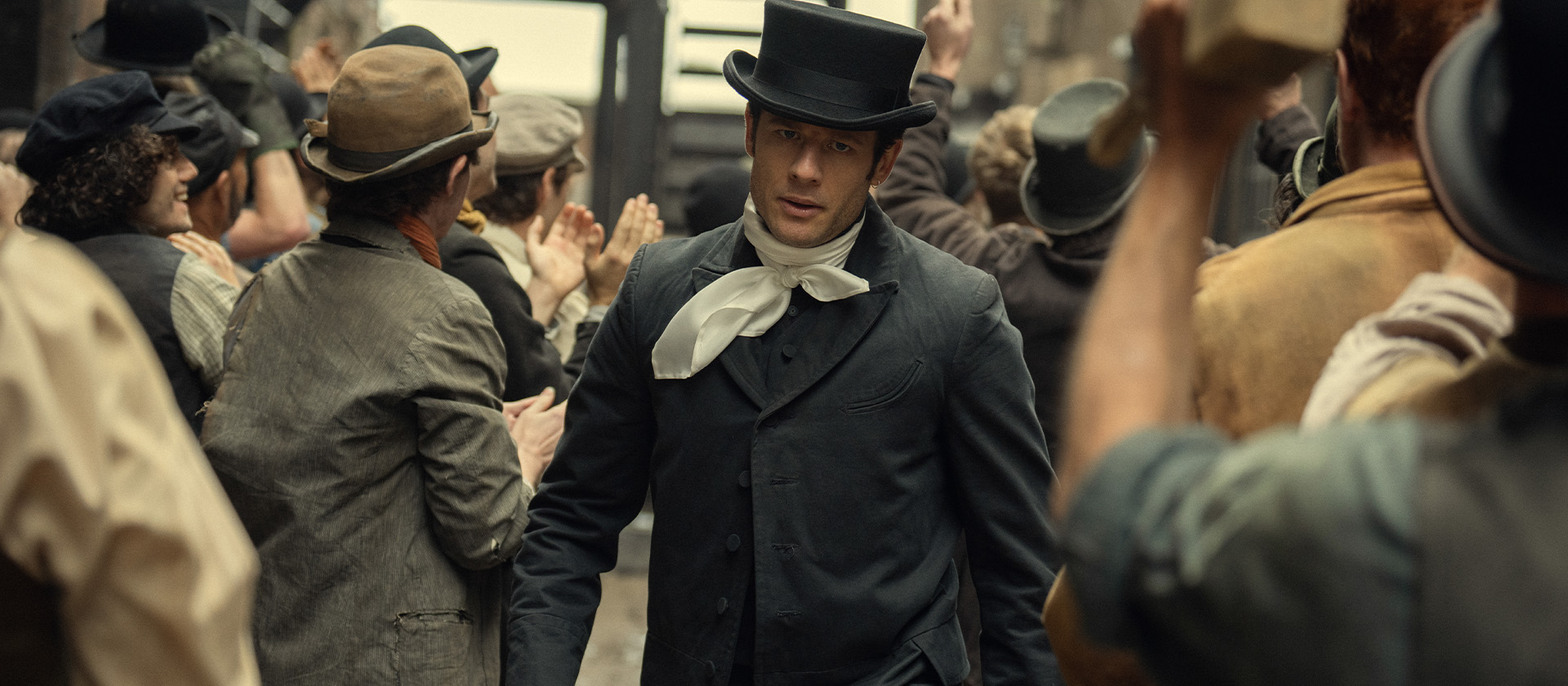
As a series, all credit due, it’s extremely digestible. Knight’s clearly smelled the post-Succession fervour in the air, and so the focus here remains tightly on the personal trials and tribulations of the four children of Sir Benjamin Lee Guinness. Arthur (Anthony Boyle) is the resident rake with a purring, sensual quality and a reluctance to get involved in anything one might deem “labour”. He’s also represented here as a closeted gay man, off the suggestion of a family biographer. Edward (Louis Partridge) is the quieter, heterosexual, altogether more dull brother, who does at least know his economics.
Their father, in a post-mortem trick, jointly bequeathed his company to the two sons on the condition they play nice—if one of them relinquishes their position, they lose their inheritance with it. The revelation is accompanied by a crash zoom in on their faces, in case you didn’t pick up how undesirable the prospect is. The other two children walk away empty handed: Benjamin (Fionn O’Shea), because of his alcoholism, Anne (Emily Fairn), because she’s a married woman, whose husband everyone assumes will provide all she needs.
We’re sat in a pivotal moment in Irish history, two decades or so after England’s mass starvation of the Irish people, during what’s know as The Great Famine, and right as the issue of Home Rule, Irish self-governance under Britain’s occupation, was coming to the forefront of political conversation. But, while the series opens with a few declarative titles along the lines of “power”, “rebellion”, “money” etc, the vast majority of screen time here is occupied by the matters of sex and desire.
Only, House of Guinness submits almost entirely to the current trend of bodice rippers soundtracked by contemporary music. And Boyle, certainly, is having a whale of a time playing up to those passions—as is Danielle Galligan as Lady Olivia Hedges-White, who knowingly enters a “lavender marriage” with Arthur, swapping the marriage bed for the negotiation table.
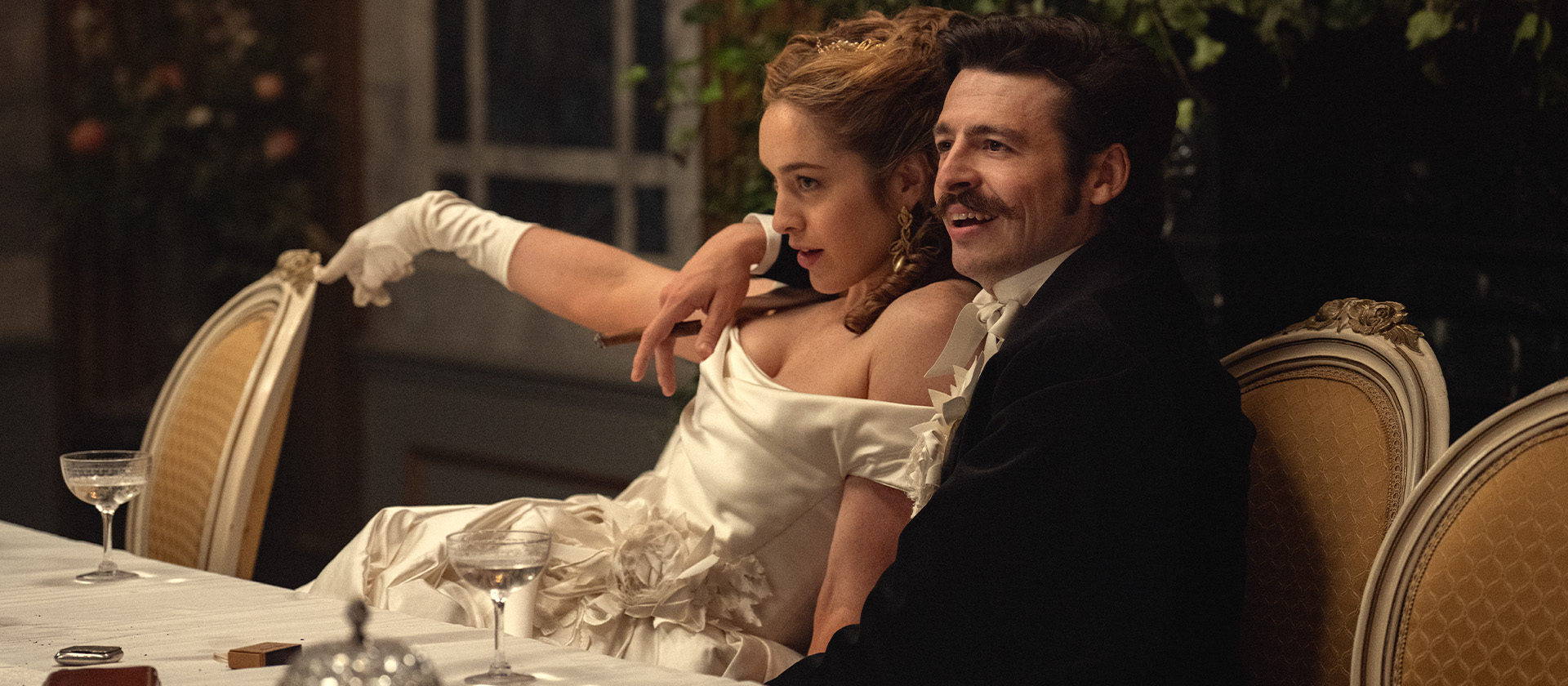
Knight is sure to inform his audiences that all they’re about to see is merely “a fiction inspired by true stories”. Television has increasingly relied on this sort of framing as a kind of “get out of jail free” card for historical accuracy. And, yet, I don’t think it’d be fair to lambast critics as spoilsports for asking a a series like this to at least play it smart with its irreverence.
House of Guinness loses a bit of its anarchic edge when it becomes clear they’re tossing in tracks from Irish groups like Fontaines D.C., Lankum, and Kneecap without actually looking up what the lyrics are, because under what logic does it make sense to play Kneecap’s defiantly satirical Get Your Brits Out over a scene of Fenian (ie the Irish Republican Brotherhood) protestors being brutally assaulted by Rafferty’s unionist men?
For all its showcasing of Irish talent, from its music to an up-and-comer like Boyle, House of Guinness takes place somewhere more akin to Disneyland Dublin, with locations across Manchester and Liverpool bathed in Knight’s trademark pea soup fog and piss-stained lamplight.
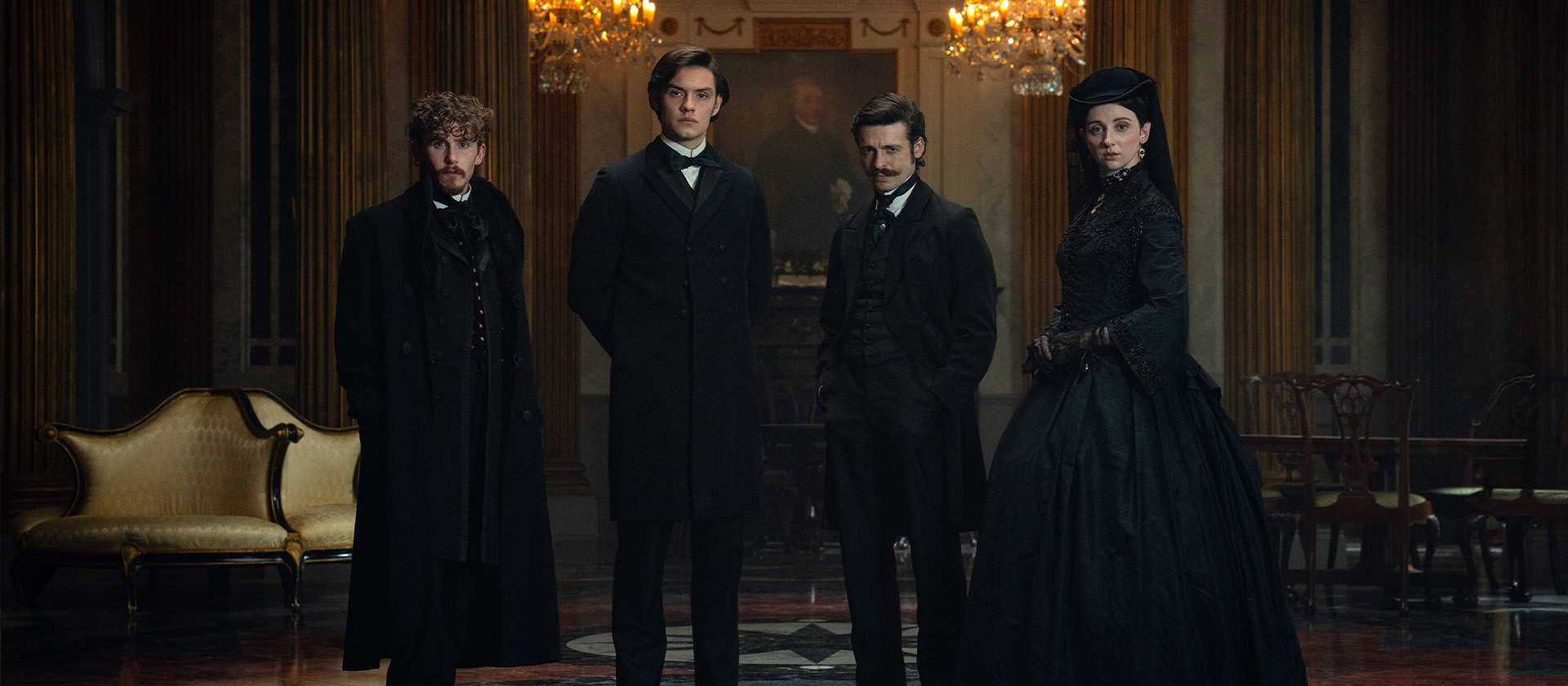
The Guinnesses were a firm part of the Protestant Ascendancy that kept Anglo-Irish families in disproportionate positions of power, and continually affirmed British interests in Ireland. Yet, the Guinnesses here act largely as if this is the first time they’ve stepped out of the house, whether it’s Anne discovering that (a) the Great Famine destroyed communities and (b) people still speak Gaeilge (although kudos to Netflix for offering Gaeilge subtitles for the series), Guinness’s American emissary Byron Hedges (Jack Gleeson) arriving in New York entirely unprepared to be greeted by anti-Catholic sentiment, or Edward getting a crash course in the Fenian cause because he’s got the hots for a woman (Niamh McCormack’s Ellen Cochrane).
The framing here very specifically waters down the direct hand the Guinnesses had in oppression and colonisation, which I imagine is fairly handy for the the direct descendant with an executive producer credit on the show, Ivana Lowell. Does Guinness really need the PR? Anyone unconvinced the drink is “liquid gold” need only take a sip, after all.





